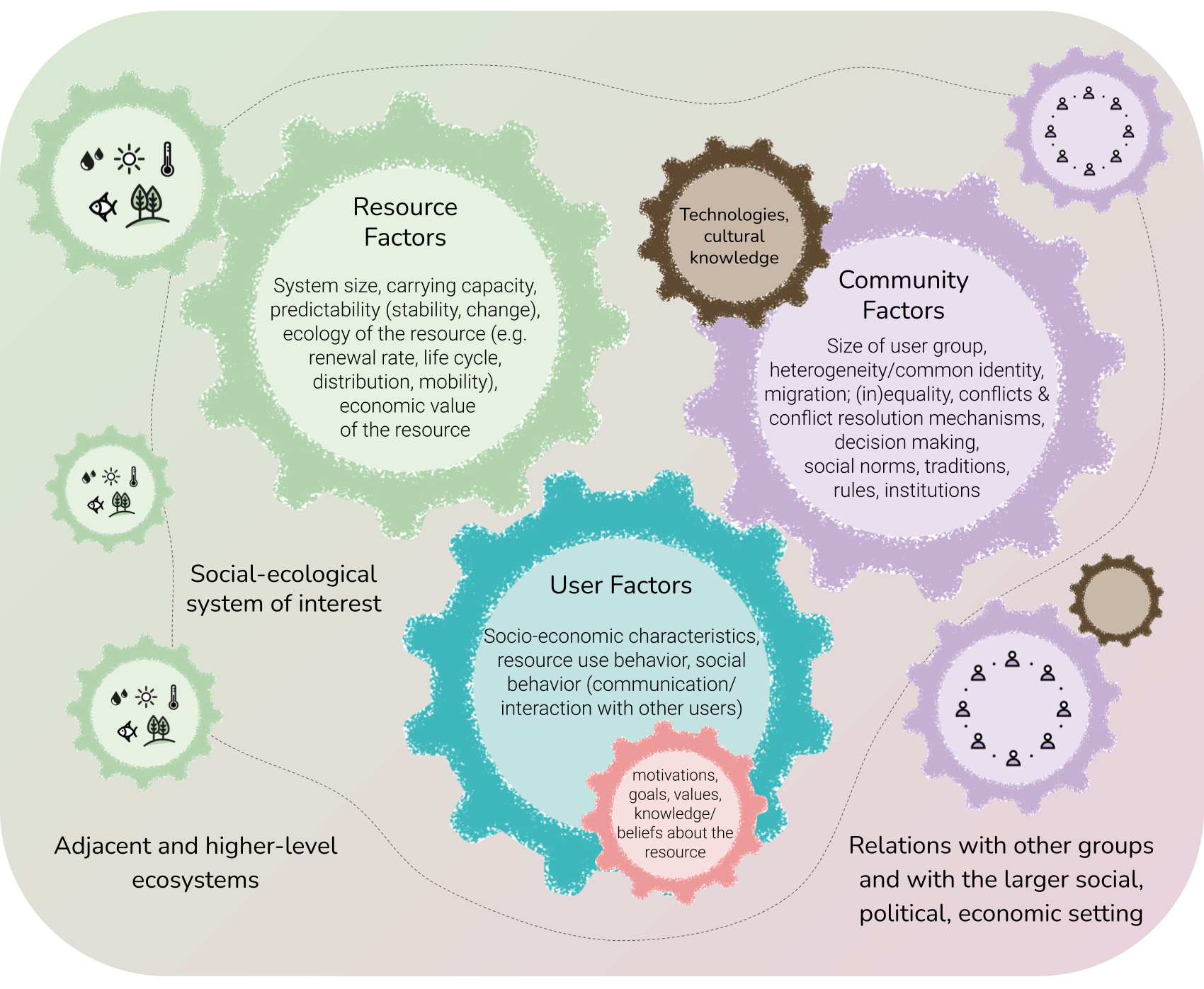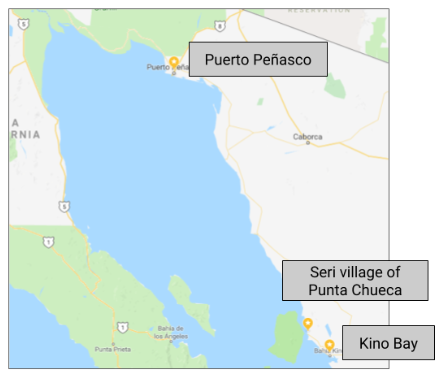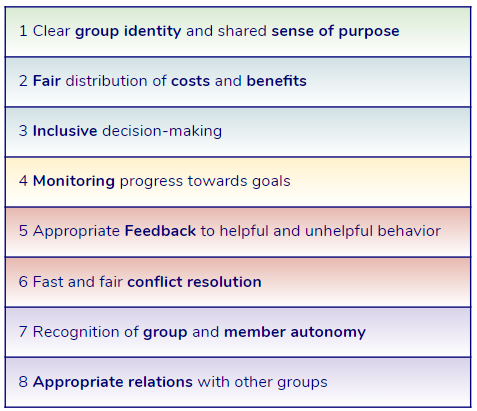LiteratureBase
Generalizing the core design principles for the efficacy of groups
Wilson, D. S., Ostrom, E., & Cox, M. E. (2013). Generalizing the core design principles for the efficacy of groups. Journal of Economic Behavior and Organization, 90, S21–S32. https://doi.org/10.1016/j.jebo.2012.12.010
Abstract
- This article generalizes a set of core design principles for the efficacy of groups that was originally derived for groups attempting to manage common-pool resources (CPRs) such as irrigation systems, forests, and fisheries. The dominant way of thinking until recently was that commons situations invariably result in the tragedy of overuse, requiring either privatization (when possible) or top-down regulation. Based on a worldwide database of CPR groups, Ostrom proposed a set of principles that broadly captured the essential aspects of the institutional arrangements that succeeded, as contrasted to groups whose efforts failed. These principles can be generalized in two respects: first, by showing how they follow from foundational evolutionary principles; and second, by showing how they apply to a wider range of groups. The generality of the core design principles enables them to be used as a practical guide for improving the efficacy of many kinds of groups.
- ► Core design principles that increase the efficacy of common pool resource groups can be generalized to other kinds of groups. ► The core design principles follow from the evolutionary dynamics of cooperation in all species and the biocultural evolution of our own species. ► The generality of the core design principles enables them to be used as a practical framework for increasing the efficacy of many kinds of groups. ► Examples are provided for classroom groups and neighborhood groups.
- Concepts Cooperation, Multilevel Selection
- Relevant learning goals Conceptual Thinking, Cooperation Competency, Evaluation Competency, Evolutionary Thinking, Interdisciplinary Thinking, Systems Thinking
- Relevant subject areas Biology, Civics, Ethics, Politics
- Relevant research methods Knowledge synthesis
- Relevant projects Prosocial World
Related Lesson Materials

Analyzing social-ecological systems
In this lesson, students analyze a select real-world social-ecological system by looking at factors of the resource(s) and ecosystem, resource user behaviors, and governance, to develop recommendations for improving the sustainable management of the resource.

Three Mexican fisheries
Students compare the stories of three Mexican fishing villages to understand the factors that enabled some villages to sustainably manage their fishing resources, while others failed.

Exploring the Design Principles for Cooperation
Students explore the principles that allow groups to work together and achieve common goals, applying them to the groups that they are a part of or care about.


